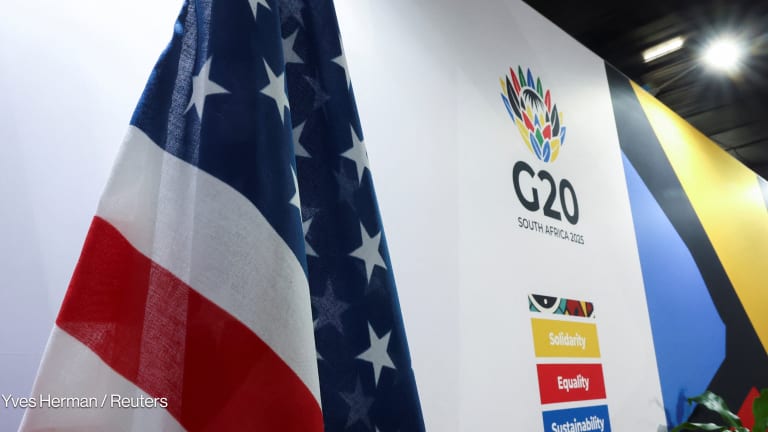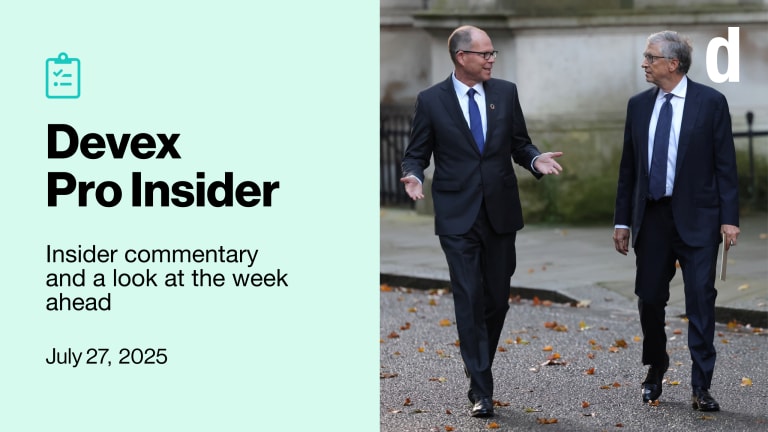With the legion of zombie banks staggering around the moonscape that is our financial system, why should the woefully understaffed Obama finance teams go out of their way to strangle live, healthy, banks operating in small island developing states, some as close as 30 minutes away from Florida?Indeed, there is a feeling in small island states that they are being picked on by the big, bullying governments, which do not have the guts to attack the root of the problem – their own citizens who use offshore banking units to avoid, though not necessarily to evade, taxes. There is a difference: Tax evasion usually deposits you, fixed-term, in jail.From Vanuatu in the Pacific to the Bahamas in the Caribbean, offshore banking units provide developing countries with a source of (usually) clean, non-polluting, low-key, environmentally friendly, climate-neutral revenues. They are also platforms for investing in emerging economies.Jurisdictions like the highly professional facility in Samoa, the tiny, little-known Cook Islands in Polynesia, and the offshore banking units of Cayman Islands, as immortalized by James Bond et al. in movies and novels, have gone to great lengths to clean up their acts. Someone getting off a plane with a bag of cash is able to make a deposit in these islands – only in the movies these days.On the 2008 campaign trail, Obama made his hostility toward offshore jurisdictions clear: "There's a building in the Cayman Islands that houses supposedly 12,000 U.S.-based corporations. That's either the biggest building in the world or the biggest tax scam in the world, and we know which one it is."But as the Sovereign Society's "Off-Shore A-Letter" – with its stirring slogan, "Feel The Freedom of Total Wealth" – pointed out: "It made no difference that a similar building in Wilmington, Delaware, home to his vice president, Joe Biden, houses more than 50,000 corporations."Offshore banks are, for the overwhelming majority, still solvent and functional. You can't say the same for European or American banks. However, all that could change with the reintroduction of the Tax Havens Act, first introduced in 2006 by then Sen. Barack Obama and Sen. Carl Levin. President Obama looks to fulfill his campaign promise to "shut down the tax havens."Desperately trying to keep his re-election hopes afloat, British Prime Minister Gordon Brown got into the act, and in his address to U.S. lawmakers bleated: "How much safer would everybody's savings be if the whole world finally came together to outlaw shadow banking systems and offshore tax havens."He is talking about legitimate financial institutions not terrorist organizations, right? Hard to tell with politicians whose poll numbers are low.No mention was made by the Right Honorable Prime Minister on how the U.K. plans to replace revenues lost by its erstwhile, and some current, colonies if their offshore banking units are shuttered, or blacklisted.Developing countries find it uncanny how, whenever they discover a means of legally and voluntarily transferring money from richer peoples to the poorer segments of the world, it doesn't take long before their former colonizers start trying to take it away from them.The proposed blacklist is seen as a serious threat to legitimate financial centers in small islands.Writing in Barbados Nation on March 9, the astute Ricky Singh reported calls for Caribbean countries operating offshore financial services to "move swiftly and collectively to be removed from the list of countries identified in the recent reintroduction in the United States Congress of a Stop The Tax Havens Abuse Act."Barbados is among 14 Caribbean states and territories that stand to be blacklisted under the act.Singh quoted the former chairman of the Caribbean Financial Action Task Force on money laundering and drug trafficking, Sir Ronald Sanders, who said the "so-called "blacklist" being vigorously supported by Britain and the U.S. was "to satisfy their own domestic interests."The English-speaking Caribbean jurisdictions named in the United States Tax Havens Abuse Act were Antigua and Barbuda, Anguilla, the Bahamas, Barbados, Belize, Bermuda, British Virgin Islands, Cayman Islands, Dominica, Grenada, St. Kitts and Nevis, St. Lucia, St. Vincent and the Grenadines, and Turks and Caicos.Meanwhile, the Sovereign Society reminds us it still is legal to:
Use an offshore bank or other financial account.
Create and donate assets to an offshore asset protection trust or family foundation.
Form and operate an international business corporation.
Acquire dual citizenship and a second passport.
Purchase offshore life insurance and annuities that allow deferred taxes.
Invest in offshore mutual and hedge funds, precious metals and real estate.
And, I really would like to, just once, "feel the freedom of total wealth."








